CuriosiD: What’s up with all these pheasants?
Shelby Jouppi January 12, 2023We answer the question, “How have pheasants survived and thrived in the urban setting of Detroit, and have they always been here?”
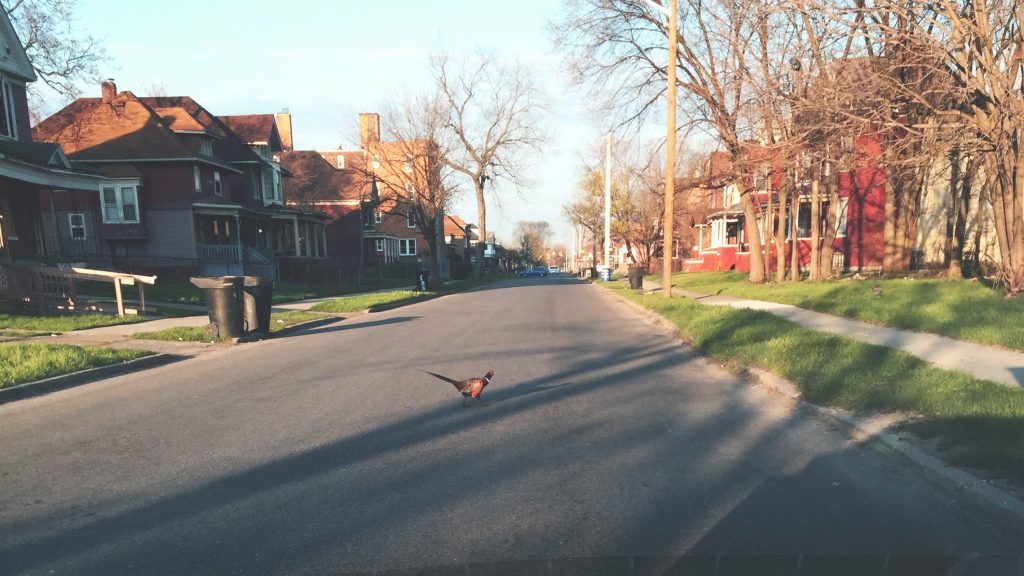
A male pheasant struts comfortably in front of listener Jenni’s car.
WDET’s CuriosiD series answers your questions about everything Detroit. Subscribe to CuriosiD on Apple Podcasts, Spotify, NPR.org or wherever you get your podcasts.
In this episode of CuriosiD, listener Jenni Sheridan Moss asks…
“How have pheasants survived and thrived in the urban setting of Detroit, and have they always been here?”
Editor’s note: This story was originally reported in June 2016.
The short answer
Pheasants have been around in Detroit since the early 1900s. Today, they find food and nest safely in the tall grasses of the many vacant lots throughout the city. The increase in these habitats and a lack of real predators make Detroit a surprisingly pleasant home for the wild game birds.
Where they’re from
Most of the pheasants we see in Detroit are called Chinese ring-necked pheasants. As the name implies, they came to the U.S. from China.
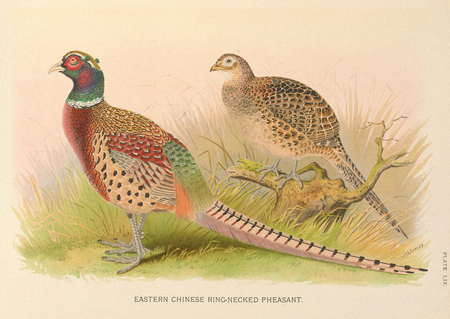
According to Al Stewart, Upland Game Bird Specialist with Michigan Department of Natural Resources (DNR), pheasants were brought to the state through Holland, Mich. in 1895. By the early 1900s they made their way to small family farms in the southern third of Michigan, where they thrived.
“They were such a beautiful bird,” says Stewart. “They were very good to eat. They thrived in the type of habitat that was being created in those days – think lots of horses, lots of oats, lots of grass and hay.”
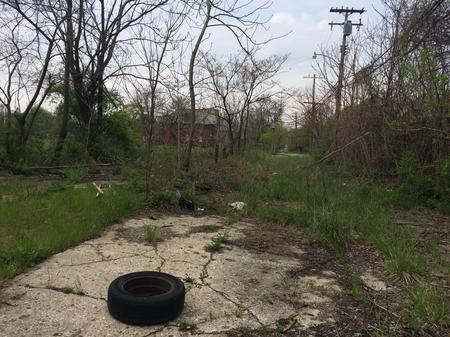
The Urban Eden
In the early 1900s, pheasants frequented the waterfront, small farms and railroad tracks throughout the city. There were places to hide in hedgerows and tree lines and ample food among the tall grasses and in the grains fed to livestock.
This kind of small farm land and grassland took up nearly one quarter of the state. It was a perfect habitat for pheasants. But, Al Stewart says around the 1960s the landscape began to change. The amount of farm land was nearly cut in half by 1990 causing a decrease in habitats for the birds.
In recent years, however, the landscape of Detroit has begun resembling those grasslands that once existed years ago.
Wildlife biologist Zach Cooley says that today, with the increase in vacant lots, pheasants can once again find shelter. In these new unkempt habitats, the birds hide in overgrowth and can graze on the vegetation, insects and seeds the land naturally provides.
And in Detroit it is pretty safe to be a pheasant. It’s illegal to hunt them, and even though the occasional raccoon or feral cat may strike, urban pheasants can easily replenish their population.
“Their main predator is probably being hit by a car,” Cooley says.
TIP: If you want to track one down yourself – try along Second Avenue. Check out our map of Detroit pheasant sightings. >>
About the asker
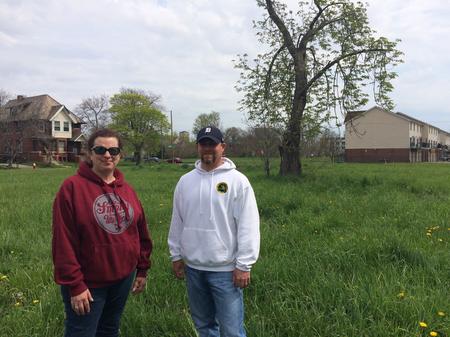
Jenni Sheridan Moss asked is an associate professor in the Classical & Modern Languages, Literatures and Cultures department at Wayne State University.
A non-native of Michigan, Jenni says she thought she was hallucinating upon seeing her first Detroit pheasant.
“Suddenly this bird walked out in front of my car, this bird with long tail feathers and I had no idea what it was – and I looked around to see if anyone else was noticing it because I really thought I was imagining it.”
Jenni says she’s lived in many different cities, but in her mind nothing compares to Detroit.
“There are these areas that are almost like the countryside; people are farming and there are wild animals,” she says. “In other cities you don’t see that.”
Detroit pheasant sightings
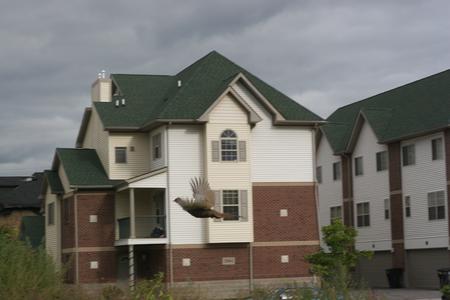

Listeners submitted locations in the city where they’ve seen pheasants roaming about. Hover over the dots to read the stories of these sightings.
Have a question of your own? Ask it here:
More from CuriosiD:
- Are the woods in Palmer Park a virgin forest?
- Who is painting the “Corn Real Good” signs?
- Are there salt mines under Detroit?
Support the podcasts you love.
One-of-a-kind podcasts from WDET bring you engaging conversations, news you need to know and stories you love to hear.
Keep the conversations coming. Please make a gift today.
